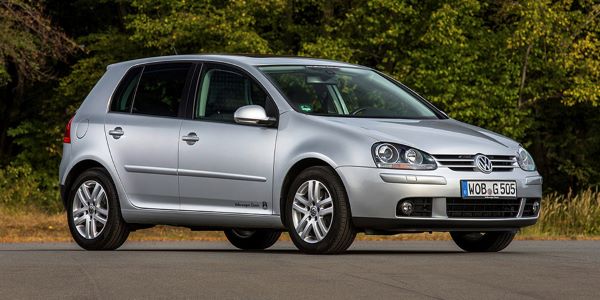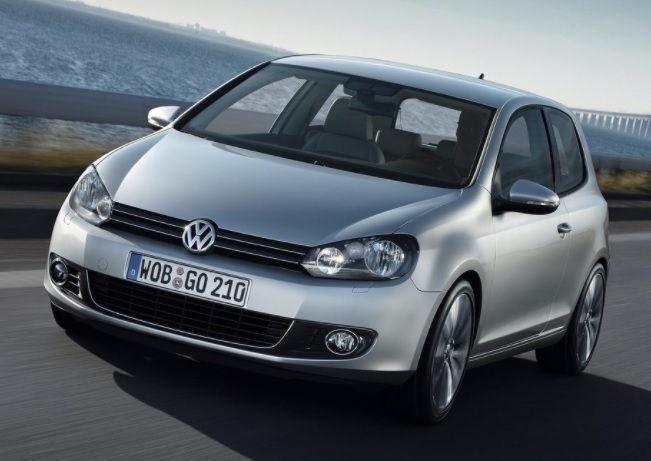Volkswagen Passat B8 Alltrack entered production in June 2015. The Alltrack is just a version of the Passat Variant estate with 4Motion all-wheel drive.
Compared to the regular estate, the Alltrack is 29 mm higher and features plastic cladding along the lower body and wheel arches. The boot capacity is 639-1769 liters, which is slightly less than in the estate: 650-1780 liters.
Volkswagen Passat B8 Alltrack – Engine
The Alltrack B8 was only available with 2-liter engines: the petrol 2.0 TSI (EA888) with 220 hp and 272 hp (a version with a particle filter), as well as the diesel 2.0 TDI (EA288) with 150, 190, and 240 hp. Diesel cars dominate the used car market.
The top-tier biturbo diesel with 240 horsepower was paired with a seven-speed DSG DQ500 automatic transmission with a so-called “wet” clutch. The top diesel version has its advantages – good dynamics and acceptable fuel consumption (tested consumption – 7.8 liters per 100 km). However, it is hard to recommend. Not only does it have two turbos on an engine with a relatively high boost pressure of 3.8 bar, but this version also has a timing belt, which is relatively expensive to replace. The manufacturer recommends a replacement interval every 210,000 km, but mechanics advise doing it every 120,000 km. The fuel injectors differ from those installed in the 150, 190, and 200 hp versions. It might be better to look for a single-turbo 190-hp engine version, which can always be slightly tuned.
All-Wheel Drive System
The Passat B8 and Alltrack feature the Swedish Haldex fifth generation, which isn’t bad. To work faster on snow and ice, the Off-road mode should be used. The oil in the clutch should be changed every 60,000 km or every 3 years, which will prolong its lifespan. The pump usually fails first.
There have already been cases of pump wear in the Passat B8. The all-wheel-drive system is well-known from many other models in the group, so repairs are possible at a reasonable cost.
DSG
In many new VW group vehicles, DSG transmissions can cause problems. In the case of the Alltrack, all DSGs have wet clutches, which is good because their lifespan is somewhat longer than dry clutches. It should be noted that changing the oil in the gearbox every 60,000 km does not extend the life of the mechatronics, as it operates in its own oil circuit. In cars with DSG, the expensive clutch and dual-mass flywheel may need replacement. The flywheel wears out in newer cars where DSG has newer software that favors low revs.
Volkswagen Passat B8 Alltrack – Bodywork
The DCC active suspension was offered as an option, which has not yet caused problems. Older generations previously had issues with sensors. The DCC shock absorbers are filled with silicone fluid containing magnetic particles that can change their properties under the influence of an electromagnetic coil.
Volkswagen Passat B8 Alltrack – Faults and Issues
It seems that the Passat Alltrack B8 is a car with few problems. Of course, it has the same shortcomings as the regular Passat B8, but they are still relatively few.
- Owners often report that the infotainment system freezes. In such cases, the touch panel refuses to work for a while. The ACC active cruise control can also freeze.
- In addition, there have been cases of vibrations, the source of which was the DSG gearbox.
- There are complaints about the relatively fast wear of the trunk panel and carpets.
- Sometimes, complaints arise due to creaking in the cabin, even in the Alltrack, which has never been off-road. At the same time, I’ve heard strange sounds from the driver’s door, dashboard, or around the rear suspension.
- There are no major problems with the Alltrack with a panoramic roof. But in other Passats, it has happened that one of the drainage pipes detaches, and water enters the trunk.
- Panoramic roofs require regular maintenance. According to the manufacturer’s instructions, the first cleaning and lubrication should be done 3 years from the production date, and then every 2 years or 60,000 km.
- Another small issue often seen in the Passat B8 is headlight washers that do not retract after use.
- Replacing the timing chain in the 2.0 TSI can be quite expensive. This mainly happens in cars used for short trips.
- Among the cheaper faults, a worn-out crankshaft position sensor is mentioned in 2.0 TDI engines.
- A typical problem with diesel engines is the water pump, which does not last until the first recommended timing belt replacement (210,000 km). It is better to replace it together with the timing belt at 120,000 km. It is important to note that pumps also fail in petrol engines, but less frequently.
- In high-mileage diesel engines, wear of the fuel system can be expected: high-pressure pumps and injectors.
The Passat Alltrack is not plagued by problems, but with high mileage, issues typical for the Passat B8 may arise.
Volkswagen Passat B8 Alltrack – Conclusion
Quite expensive but very valuable car – this is how the Passat Alltrack B8 can be briefly described. It is a complex car in terms of electronics, but with good maintenance, it can last many years without any issues.



